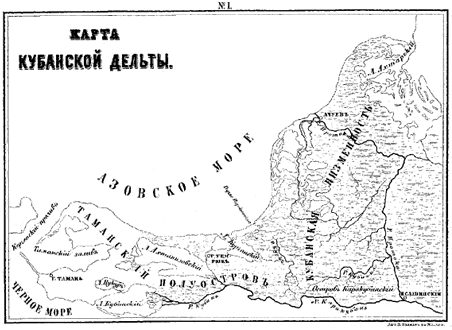Bikhakhanim on:
[Wikipedia]
[Google]
[Amazon]
 Bikhakhanim (d. after 1419), was the reigning princess of a small polity located on the
Bikhakhanim (d. after 1419), was the reigning princess of a small polity located on the
Rosenthal, Herman. "Bikhakhanim".
'' Jewish Encyclopedia''. Funk and Wagnalls, 1901-1906. 15th-century deaths 15th-century women rulers 15th-century people from Georgia (country) Year of birth unknown Russian princesses 15th-century Russian princesses 15th-century Russian people 15th-century Russian women {{Georgia-hist-stub
 Bikhakhanim (d. after 1419), was the reigning princess of a small polity located on the
Bikhakhanim (d. after 1419), was the reigning princess of a small polity located on the Taman Peninsula
The Taman Peninsula (russian: Тама́нский полуо́стров, ''Tamanskiy poluostrov'') is a peninsula in the present-day Krasnodar Krai of Russia, which borders the Sea of Azov to the North, the Strait of Kerch to the West and the ...
in southern Russia
Russia (, , ), or the Russian Federation, is a transcontinental country spanning Eastern Europe and Northern Asia. It is the largest country in the world, with its internationally recognised territory covering , and encompassing one-eig ...
.
She may have been of Circassian, Georgian
Georgian may refer to:
Common meanings
* Anything related to, or originating from Georgia (country)
** Georgians, an indigenous Caucasian ethnic group
** Georgian language, a Kartvelian language spoken by Georgians
**Georgian scripts, three scrip ...
, or Cuman
The Cumans (or Kumans), also known as Polovtsians or Polovtsy (plural only, from the Russian exonym ), were a Turkic nomadic people comprising the western branch of the Cuman–Kipchak confederation. After the Mongol invasion (1237), many so ...
origin. The Russian historian F. K. Brun, suggests that the name of the princess might not have been "Bikhakhanim," but "Bikhakhatun," and that, if so, she was the daughter of the Georgian prince Beka II Jakeli (died 1391), the ruler of Samtskhe
Meskheti ( ka, მესხეთი) or Samtskhe ( ka, სამცხე) ( Moschia in ancient sources), is a mountainous area in southwestern Georgia.
History
Ancient tribes known as the Mushki (or Moschi) and Mosiniks (or Mossynoeci) were t ...
and Klarjeti
Klarjeti ( ka, კლარჯეთი ) was a province of ancient and medieval Georgia, which is now part of Turkey's Artvin Province. Klarjeti, the neighboring province of Tao and several other smaller districts, constituted a larger region wi ...
.Brosset ii. 206.
However, "Beki" means "Ruling Woman" in Mongolian and "Khanim" was the Medieval title of a female patrilineal descendant of Genghis Khan (equivalent to "Khan" for a male). 1419 was the year that the sons of Tokhtamysh
Tokhtamysh ( kz, Тоқтамыс, tt-Cyrl, Тухтамыш, translit=Tuqtamış, fa, توقتمش),The spelling of Tokhtamysh varies, but the most common spelling is Tokhtamysh. Tokhtamısh, Toqtamysh, ''Toqtamış'', ''Toqtamıs'', ''Toktamy ...
Khan of the Golden Horde
The Golden Horde, self-designated as Ulug Ulus, 'Great State' in Turkic, was originally a Mongol and later Turkicized khanate established in the 13th century and originating as the northwestern sector of the Mongol Empire. With the fragme ...
killed his rival Edigu
Edigu (or Edigey) (also İdegäy or Edege Mangit) (1352–1419) was a Mongol Muslim emir of the White Horde who founded a new political entity, which came to be known as the Nogai Horde.
Edigu was from the Crimean Manghud tribe, the son of B ...
the Khan of the Nogai Horde
The Nogai Horde was a confederation founded by the Nogais that occupied the Pontic–Caspian steppe from about 1500 until they were pushed west by the Kalmyks and south by the Russians in the 17th century. The Mongol tribe called the Manghuds co ...
as a continuation of the Tokhtamysh–Timur war
The Tokhtamysh–Timur war was fought from 1386 to 1395 between Tokhtamysh, khan of the Golden Horde, and the warlord and conqueror Timur, founder of the Timurid Empire, in the areas of the Caucasus mountains, Turkistan and Eastern Europe. The ...
and reestablished control over the region.
Bikhakhanim was married in 1419 to the Genoese Jew
Jews ( he, יְהוּדִים, , ) or Jewish people are an ethnoreligious group and nation originating from the Israelites Israelite origins and kingdom: "The first act in the long drama of Jewish history is the age of the Israelites""T ...
Simeone de Guizolfi, who through this marriage became ruler of that country under Genoese overlordship. One of his heirs, Zacharias de Guizolfi, was still reigning in 1482.
See also
* Gazaria *Ghisolfi De Ghisolfi (also known as de Guizolfi, de Gisolfi, Guigursis, Guilgursis and Giexulfis) was the name of a Genoese-Jewish family prominent in the late Middle Ages and the early Renaissance.
In 1419, the Genoese Jew Simeone de Ghisolfi married a ...
*Tmutarakan
Tmutarakan ( rus, Тмутарака́нь, p=tmʊtərɐˈkanʲ, ; uk, Тмуторокань, Tmutorokan) was a medieval Kievan Rus' principality and trading town that controlled the Cimmerian Bosporus, the passage from the Black Sea to the Se ...
Notes
References
* Brosset, Marie-Félicité. ''Hist. de la Géorgie.'' *Brun, F. K. ''Trudy Pervago Archeologickeskago Syezda v Moskve,'' 1869, ii. 386 *Löwe, Richard. ''Die Reste der Germanen am Schwarzen Meere'', p. 42, Halle, 1896.Rosenthal, Herman. "Bikhakhanim".
'' Jewish Encyclopedia''. Funk and Wagnalls, 1901-1906. 15th-century deaths 15th-century women rulers 15th-century people from Georgia (country) Year of birth unknown Russian princesses 15th-century Russian princesses 15th-century Russian people 15th-century Russian women {{Georgia-hist-stub